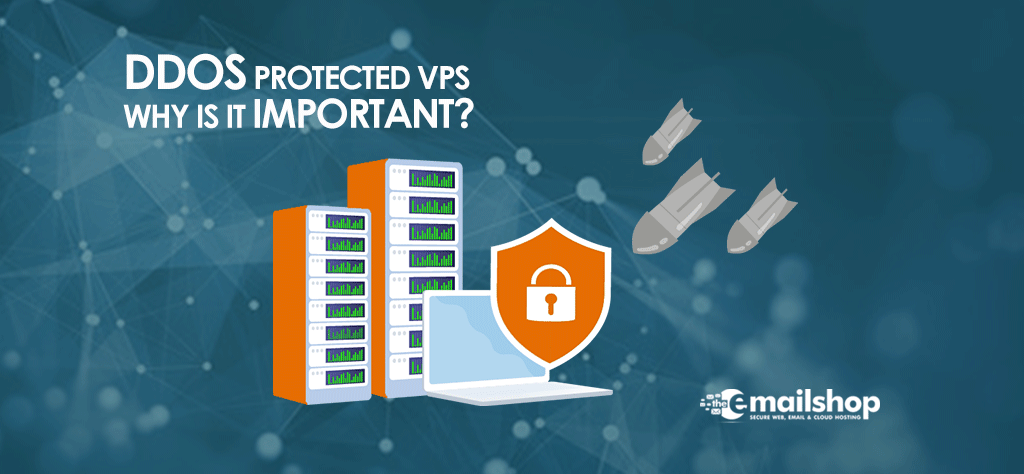Distributed Denial of Service, commonly known as DDoS attacks, can destroy online businesses. This blog is all about one of the best solutions to this problem. We refer to it as DDoS protected VPS.
DDoS can halt your website. It will go off in seconds, and none of your clients will be able to access it. The philosophy of DDoS is to make your server work more than its capacity and eventually fail. The attacks overwhelm your server and its resources.
We would cover the following points in the article:
- What Risks Are Associated With DDoS?
- What is DDoS Protected VPS?
- Which Types of DDoS Can It Help You Prevent?
Risks Associated With DDoS
So, if it just causes your website to shut down, it sounds like only an inconvenience. It does not sound like a threat. So what makes it so? Hackers use it for more dangerous attacks. That list includes names as terrible as malware activations, network breaches, data breaches, and virus infections.
Let us examine the different risks associated with it.
-
Business Loss
There is only one purpose of sales. It is to earn revenue. So even if DDoS does not lead to any other attack, you would still at least face downtime. And if you face downtime, imagine how many sales you will lose. If your web application suddenly stops responding, your customers will not always be loyal enough to wait. They will put their order somewhere else. The amount of revenue you may lose per hour depends on your type and business size.
-
Data Breach Risk
DDoS attacks, in many cases, serve to distract web admins from more severe attacks underneath. Yes, they can be way more damaging. For example, someone can find all illegal access points to your network. That person can easily steal all your sensitive information. Hence, your security staff must be extra careful and proactive to stay safe.
That would have twofold benefits. First, you can reduce the effects of DDoS, and then you can manage to spread awareness among your employees about possible attacks. The team should be eligible enough to take many backups of critical data. Also, that backups should not be in one place. An intelligent approach would be to distribute those backups across multiple random collections. Otherwise, you will be left in the dark if you store at one point and hackers compromise that point.
-
Loss of Customer Confidence
Availability directly influences customer trust. If your website is not accessible, they will lose trust in seconds. Customer trust requires the best network and web service availability. Satisfied customers also help you get new customers through word of mouth. The market is competitive, and one cannot emphasize that point more.
-
Ransom
Nowadays, cyber attackers also demand heavy ransom. They threaten organizations with DDoS attacks against the most critical online systems. They send a threatening message with a clear deadline for ransom collection.
Sometimes, they launch a minor attack before the message only to demonstrate their abilities.
-
Increasing Help Desk Expenses
Right at the moment your services stop responding, clients would start calling you. They will also flood your inbox with emails, and the volume of both emails and calls will soon become too large to handle. So everyone should be at their desk, and much of your efforts will be invested in this section.
DDoS Protected VPS
A DDoS VPS that comes with DDoS mitigation included. Some people also refer to it as ‘Anti-DDoS VPS.’ It resides on a server that is tailor-made to prevent DDoS attacks.
To handle this, some things are necessary. First is the high data transmission limit. Also, such a system would not work without solid hardware firewalls. These firewalls are powerful enough to stop DDoS attacks in their tracks. An ideal DDoS protected VPS would be able to resist the following DDoS attack types.
- Volumetric attacks – (It works through a fake traffic flood)
- Protocol-based Attacks – (It disturbs the way servers transfer the data)
- Attack on a particular application or server
Many low-cost hosting providers do not include DDoS protection in their packages. Unfortunately, that eventually leads to higher running costs.
You Might Also Like to Read: Do VPS Servers Have Good Uptime?
The Types of DDoS Attacks DDos Protected VPS Can Control
So, get the DDoS protected VPS to stay safe from DDoS attacks. It is the best solution. Let’s check out the most famous and prevalent DDoS attacks that it can efficiently handle.
-
ICMP (Ping) Flood
It is the most used Denial of Service attack. Hackers overwhelm the system with ICMP echo requests. They just keep sending packets and never wait for the server’s response. After some time, when the system cannot bear it anymore, it goes down or stops responding to any query.
-
UDP Flood
The goal of this DDoS attack is to flood the random ports on the target server. The victim’s system checks for applications associated with the post and starts sending the packets. But, it cannot handle the bigger volume of requests. So the system becomes inaccessible to many clients.
-
Ping of Death
The name shows the severity of this attack. The hackers put their best effort into crashing and completely freezing the target server. They use a Ping command to send oversized or malformed packets. Now the name must be making complete sense to you.
The result is an overflow of memory buffers allocated to the packet. That leads to denial of service for legitimate packets.
-
HTTP Flood
The method of this attack is to manipulate HTTP and POST requests. They utilize HTTP flooding to attack a server or application. Such assaults typically take advantage of connected systems that have been maliciously compromised by software like Trojan Horses.
The worst is when HTTP flood tricks the server into allocating the maximum possible resources to every request.
-
SYN Flood
They use a well-known weakness in the TCP connection sequence. Attackers send a series of SYN requests to the server to consume the server resources. They keep repeating until the server becomes inaccessible for legitimate traffic.
For Discount and Offers, Visit our Official Twitter Page









